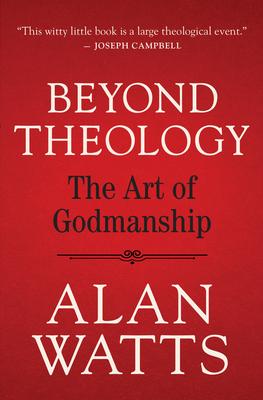
In this landmark work, Watts asks whether a "rigorous, imperious, and invincibly self-righteous" religion such as Christianity can stay relevant in our modern, multicultural world. To answer that question, he deconstructs Christianity by using concepts borrowed from psychology, linguistics, science, and Eastern philosophy. In the process, he solves difficult problems of theology, traces the impact of Christianity on Western culture, and points the way to a new form of nondualistic spirituality. Playing the role of a philosophical jester, Watts artfully deploys paradoxes, riddles, and gently subversive humor to overturn conventional wisdom. His intention is not to hold sacred things up to ridicule but rather to expand our definition of the sacred. The ultimate aim is to help us see beyond the external trappings of religion -- beyond ritual, myth, doctrine, and theology itself -- to experience the divine within ourselves.
In this landmark work, Watts asks whether a "rigorous, imperious, and invincibly self-righteous" religion such as Christianity can stay relevant in our modern, multicultural world. To answer that question, he deconstructs Christianity by using concepts borrowed from psychology, linguistics, science, and Eastern philosophy. In the process, he solves difficult problems of theology, traces the impact of Christianity on Western culture, and points the way to a new form of nondualistic spirituality. Playing the role of a philosophical jester, Watts artfully deploys paradoxes, riddles, and gently subversive humor to overturn conventional wisdom. His intention is not to hold sacred things up to ridicule but rather to expand our definition of the sacred. The ultimate aim is to help us see beyond the external trappings of religion -- beyond ritual, myth, doctrine, and theology itself -- to experience the divine within ourselves.
Paperback
$18.95